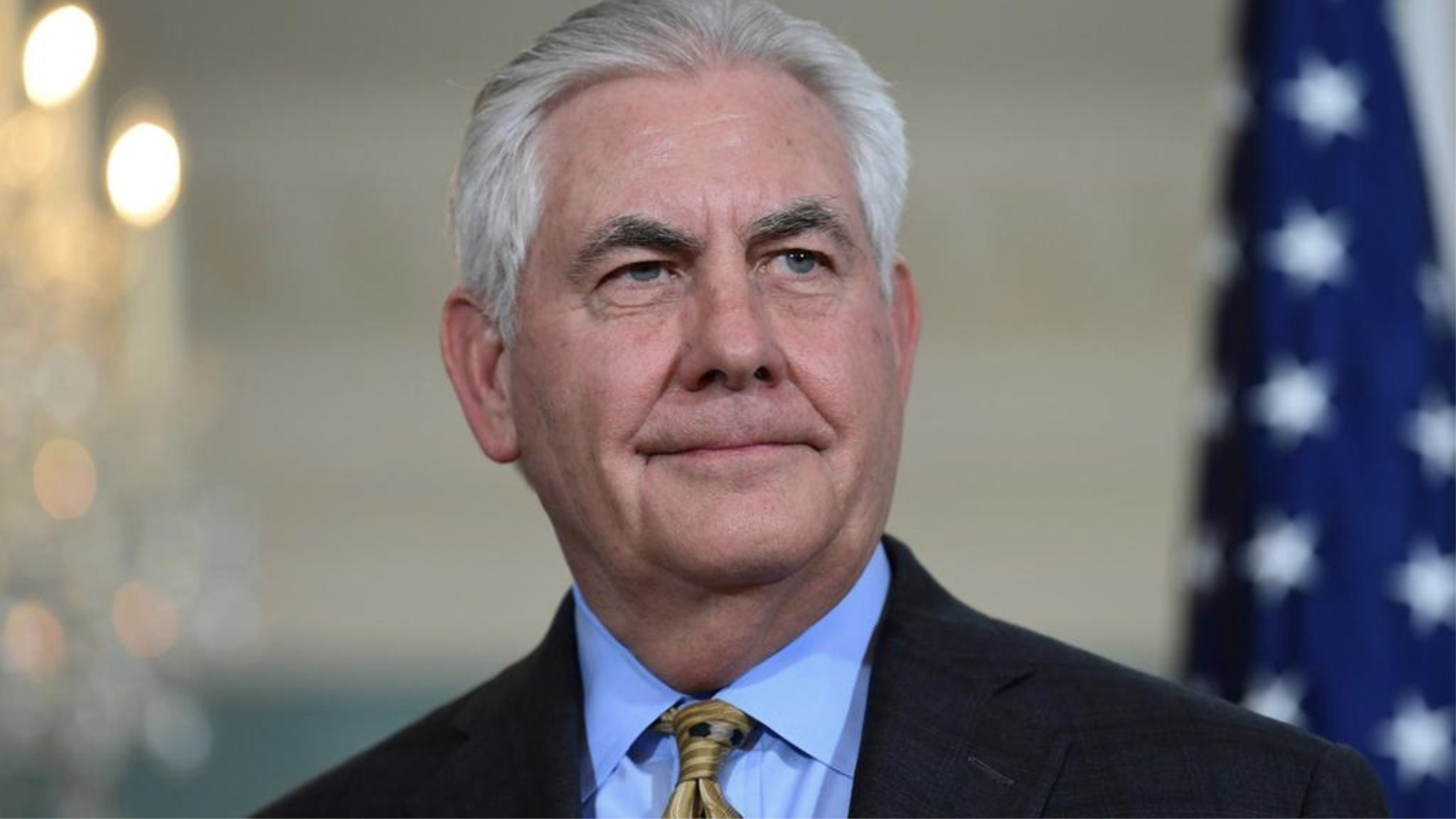Prosecutors allege that Barrack used his “unique access” to Trump to influence him in order to further the interests of the UAE in the GCC crisis.
US Secretary of State Rex Tillerson was called as a government witness on Monday at the trial of a Trump ally accused of leaking intelligence to the United Arab Emirates during its blockade on Qatar.
In his testimony, Tillerson admitted that he knew very little about the defendant, Tom Barrack, who served as the chairman of Trump’s inaugural committee and had ties to the UAE.
Instead, he described how he would regularly meet with Trump to discuss foreign policy, stressing that the sensitive conversations were supposed to remain private.
“You really don’t want outside parties to have access to that information and use it to their advantage,” Tillerson told a jury in New York.
Prosecutors believe that Barrack provided inside knowledge about how members of the Trump administration felt about the blockade imposed on Qatar by neighbouring countries.
In his testimony, Tillerson stated that he had advised Trump not to discuss the matter with the UAE, stating that “We needed to let them sort that out on their own.”
Barrack once “called over to my office and expressed an interest in an ambassadorship,” as Tillerson recalled in another encounter. However, Trump rejected the idea, and he claimed that “that was the end of it.”
During the cross-examination, Tillerson admitted to having differences with Trump but refrained from attacking the previous president.
He claimed that when making public pronouncements about countries like North Korea, they occasionally played the “good cop-bad cop” role.
The former CEO of Exxon Mobil is the most well-known witness to date in the federal trial of Barrack, a billionaire private equity manager and close friend of former president Trump, who is charged with acting covertly as an agent of the UAE.
Along with other charges, including falsifying records and obstructing the course of justice, Barrack, plead not guilty.
In 2018, Trump abruptly terminated the employment of Tillerson via Twitter, furthering the chaos within his administration despite the cabinet secretary reportedly calling the Republican president a “moron” but refusing to resign.
Trump and Tillerson disagreed on a number of foreign affairs issues.
Prosecutors allege that Barrack used his “unique access” to Trump to influence him in order to further the interests of the UAE, including setting up a meeting between Trump and the crown prince of Abu Dhabi in the Oval Office in 2017.
Officials from the UAE are said to have been collaborating with Barrack at the same time and rewarding him by investing millions of dollars in his business endeavours.
In late 2021, Barrack was one of three people charged with involvement in the UAE lobbying scandal. Matthew Grimes, a former employee of his, and Rashid al-Malik, a businessman from the UAE who is connected to the royal family, are also accused.
The allegations suggested that the UAE had a significant influence on Trump’s Middle East policy, particularly in 2017 when the UAE and Saudi Arabia imposed a blockade on Qatar, a neighbouring Gulf state.
According to the Department of Justice, Barrack allegedly asked Al-Malik to send a “wish list” of US foreign policy objectives that the UAE expects from the Trump administration after Trump’s election in 2016.
In September 2017, after Trump declared plans to invite adversaries to the White House to work on resolving the conflict, Barrack persuaded him to cancel the Camp David summit.
The US government revealed that Barrack used a telephone with a secure messaging app to communicate with UAE officials, according to the indictment.
The draft message said Barrack reported that several senior US officials were trying to convince Trump “that Qatar is a victim! And that all of the other countries (Saudi, UAE) are also funding [terrorist] groups,” referencing allegations levelled against Doha by the former blockading states.







